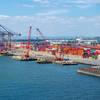Training Tips for Ships: Taking the Stress out of Tests
We must assess our trainees. Yet we have all heard the complaints they raise about assessments: “I am a bad test-writer”, “this test was much more difficult than I expected”, “I know the material but I did not understand the questions”, “I was nervous, and my mind went blank”, etc.
These are not the occasional concerns of weak or lazy trainees – they are the norm. And we must listen because our trainees are telling us that we cannot rely on our assessment results as an accurate reflection of what they know. Furthermore, these concerns alienate people from training programs, make them nervous, and further the impression that training is a punitive rather than supportive activity.
There are many issues that lead to these concerns and complaints about assessment. But most agree that the root case of a majority of these concerns is lack of familiarity and experience with test taking. Remember – most of our trainees are not expert students but rather expert mariners. Courses, classes and test are not the norm for them. Thus, to most of our trainees, tests are occasional, unpredictable, painful, stressful, high-stakes experiences. Imagine being placed in a situation that you’ve rarely encountered before, where you don’t know what to expect, and where the outcome may be pivotal to your future. This is a very difficult experience for many trainees, and this difficulty can greatly reduce the validity of the assessment results. We don’t want any of that. Yet we must assess. So, what do we do?
This is not a new problem, and there are many proposed solutions involving alternative models of assessment. For example, we have alternatives such as project work, portfolio creation, “authentic” assessment, game-based assessment, and others. However, these are a bridge too far for most organizations as a first step. Fortunately, we can make a dent in all the issues raised above with a simple tool: self-assessment.
The technical description for a self-assessment is “formative”. That is, its purpose is to support rather than evaluate the learner. Self-tests can be administered by paper (and “peer-graded” by other trainees to reduce your workload) or on-line through an LMS. In the case of on-line self-tests, the benefit is that trainees can do them over and over, whenever it best fits their learning progress, and each time get a different mix of questions. The key is that the results of self-tests are not recorded. Therefore, trainees know that taking a self-test is a risk-free and supportive experience for the sole purpose of making them successful on the final exam.
Specifically, self-tests address all the issues raised above. First, they provide practice. This shows the trainee what to expect in terms of assessment process and knowledge. It removes surprise. Trainees see what a test looks like and the style and difficulty of questions to expect.
Secondly, self-tests are an excellent opportunity for the organization to convey its expectations as to how deeply the materials should be studied. Trainees can then tune their learning to the organization’s expectations by continuing to study until such point as they are successful in the self-tests. This reduces both over- and under-study, and greatly increases the chance of a successful learning outcome.
This is good for everyone. For trainees, assessments become familiar and more routine. They know what to expect, their stress is reduced, and the end result will be a final assessment which is more reflective of their actual knowledge. Equally importantly, they will feel better supported and see your organization more as a partner in their success rather than a barrier to it.
It’s simple. If you would like to improve nearly every aspect of your assessment program, incorporate as many opportunities as possible for self-evaluation.











